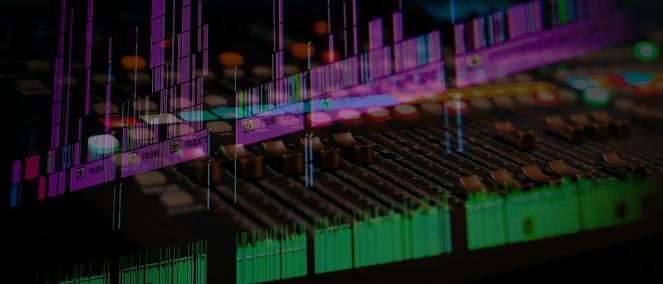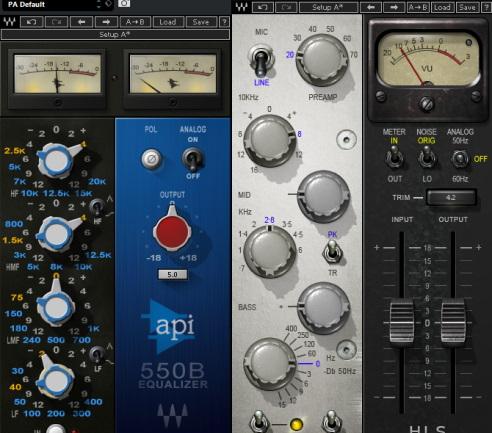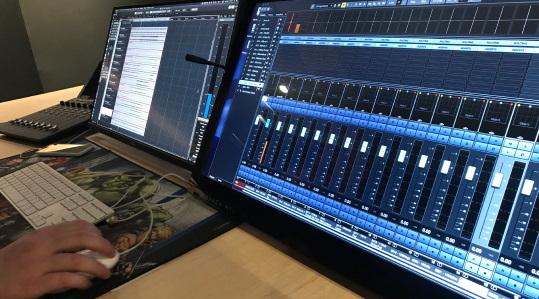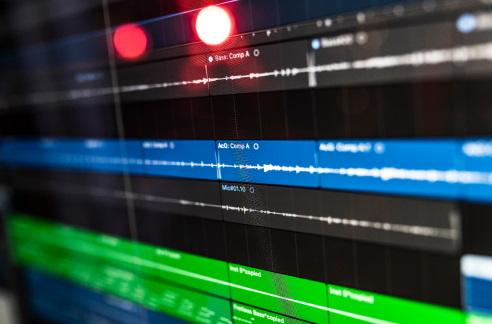Working on stems opens possibilities to carry out refinements to the mix much more than a traditional mastering session does. If you allow the thought that something in the mix still may be changed and made better, then our Stem Mastering services are for you. You may not be sure what you would like to change, or you may already know the alterations you want to see in the master recording compared to the mix, either way, it’ll make sense to try and order our best stem mastering online for your composition.
While stereo mastering session is done on one track, this option uses a set of stems to create a mastered record. It’s an advanced option for mastering that gives the mastering engineer more control on the mastering stage over all the stems. Stem is a track that unites similar instruments like vocals, guitars, drums, and so on.
How the stems are formed may vary, as well as their number in the mix. One can decide to unite vocals in one stem and all the instrumental accompaniment in the other and have just two stems in the mix. On the other hand, you can form several stems, separate for lead vocals, back vocals, guitars, piano, snare drums, etc.

Working on stems, the specialist is able to do some adjustments for the song that would not be possible to do within stereo mastering. Here is what stem mastering allows to do:
Besides that, all other loudness and frequency corrections will be accomplished, pertaining to working on the composition as a whole. As a result, you will receive one stereo track.
Also, it may be needed to specify the platform on which you are planning to stream your song, for example, iTunes, Spotify, or another, and we’ll do the work meeting all the requirements of this particular medium.
It is an extended option, and therefore it has advantages. Especially when you feel that your mix might still require slight improvements, then you need to choose stem mastering for sure.
Generally, almost every piece of music will benefit from this variant of online mastering. Stem version is the best because in this case, our professionals will have more resources to improve the sound. Musicians of every genre use stem mastering online. Pop music, hip-hop, rock, and more. Especially if the composition initially contained several dozen or even up to a hundred tracks, artists may want to use stem mastering to work with just a few stems and perfect some details after mixing is done.

Every one of our professional sound engineers has profound experience working in the music industry. We have brought many songs to success and we know how to perfect your music piece.
Ordering this service, you are giving us even more possibilities to improve and balance your sound according to the leading standards in the music industry. At the same time, we’ll pay close attention to the individuality and unique sound advantages only your composition contains, we’ll enhance and emphasize the individuality of the song.

It’s easy to order, just upload the zip file with your stems in the order window, and choose the needed add-ons.
If you have any questions, please, feel free to ask them via our online chat.
Every one of our professional sound engineers has profound experience working in the music industry. We have brought many songs to success and we know how to perfect your music piece.
Depending on how much control you want to give your mastering engineer over your mix, you decide whether to send him stems for mastering or one stereo file.


If you wish, you can unite different instruments into one stem or create separate stems for each of them. For Hip Hop, there usually will be a stem for the beat and a stem for vocal, this often is the most useful way to stem master Hip Hop. For Rock songs, stems may include vocals, backing vocals, guitars, and drums.
During stem mastering, the engineer uses the same plugins as for stereo mastering final stage, and the process is roughly the same as with a single file. However, the engineer may choose to apply different settings to different stems to increase the overall quality, and make the master record sound better, implementing slight changes:
Why is stem mastering needed, not just the stereo mastering process? Why not just master the stereo mix? It could be needed for many reasons, to change something in the stereo mix as well as to preserve something unchanged.
Stem mastering to preserve the initial balance
Mastering uses bus processing equalization and compression on the master channel to create the loudness level required for modern music. However, sometimes when mastering plugins are applied to the whole track it could dim some elements that were in the front and loud in the initial mix. The same compression settings may not work equally well on each element of the mix. In this case, mastering engineers would ask to print stems to have greater control and master them separately, making a better final version of the song. So at times, a stem mastering session is needed not to change the initial mix, but to preserve its initial stereo imaging idea and balance more accurately while mastering.

Stem mastering to make slight changes
Sometimes mixing has been done by a different person and the mastering engineer listens to the mix session and sees something that the mix engineer missed because he is used to the song already and the mastering engineer listens to it for the first time. Then your mastering engineer may ask for the separate stereo prints/stems to implement little changes together with mastering and correct something that the mixing engineer missed.

Stem mastering to check
Sometimes it happens that the mixing session in digital audio workstation includes up to a hundred and more tracks in the entire mix and then you might still want to have another look at the multitrack when all of those tracks are united into just under ten stems. Then you allow the sound engineer to have the final touch, to balance the main elements of the final stereo mix. So we see that if we weigh traditional mastering vs stem mastering, stem mastering sessions have more advantages, especially if there are multiple instrument groups and multiple stems to go into the final master.

Many sound engineers don’t like mastering individual stems. The argument against it is that mastering multiple stems is not actually mastering, it’s partly a mixing process. And that if you need stem mastering that your mixing is not finished or you have a bad mix. But it’s not true. If you know that your mastering engineer is a professional and can only improve the sound of your mix, why not give him not just a single stereo file, but extra control to improve your master record? You can send him stems and give him more freedom while mastering to work with separate stems if he needs it to create a better final mix and master record.
So stem mastering is not showing that your mixing is wrong, it just shows that you trust your mastering engineer and want to give him or her a little more freedom, and of course, the results can only be better, and you’ll receive great final masters for release.